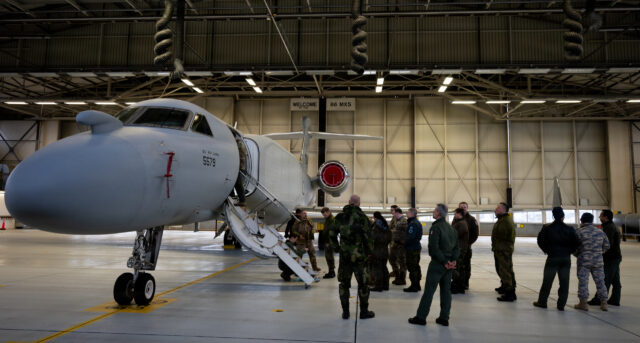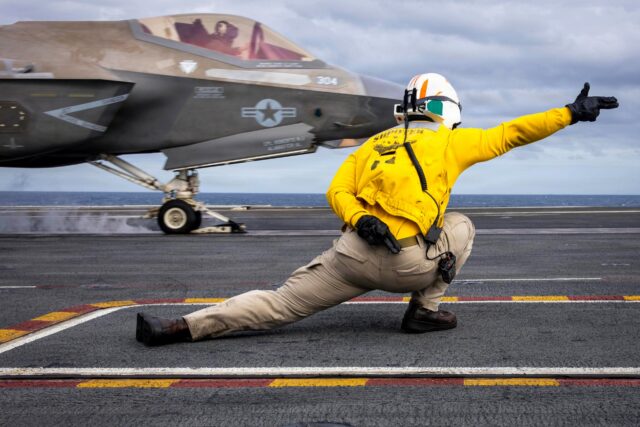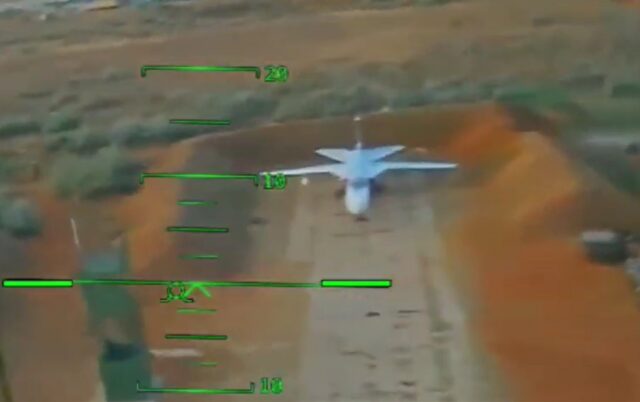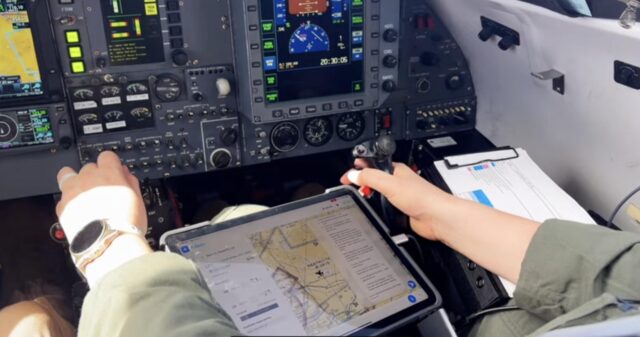Babcock has strengthened its fighter pilot training offering in (but perhaps not for) France
January 8, 2025

Babcock has purchased 11 L-39 Albatros jet trainer aircraft for its international fighter pilot training academy, to augment the turboprop-powered PC-21s now in use, possibly deepening its long-standing involvement in delivering aircrew training to the Armée de l’Air et de l’Éspace.
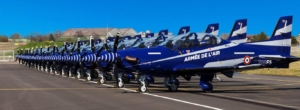
Babcock Mission Critical Services France (BMCSF) purchased 17 Pilatus PC-21 trainers on 30th December 2016, to support Armée de l’Air pilot training. These were procured together with a new suite of two cockpit full mission simulators (provided by CAE) and three procedural part-task trainers. The simulators are housed in a purpose built structure at Cognac airbase. This acquisition was part of an 11 year F-Air 21 contract (formerly known as the FOMEDEC contract), intended to ensure the uninterrupted output of pilots even as the French air force’s Alpha Jet fleet dwindled and became progressively less available.
Following a 27-month mobilisation and transition phase Babcock (partnered with Dassault Aviation) will provide training support for a period of eight with fleet availability adapted to support up to four sorties by 14 aircraft per day, plus a demanding night flying programme. This totalled 11,000 flying hours and 6,500 simulator training hours per year. While Babcock manages the programme itself, the Armée de l’Air provides its own instructors. The French Air Force Jet Fighter Pilot Academy graduated its first class of student pilots at Cognac (BA709) on 16 September 2020. A new five year Mentor1 programme was awarded to Babcock in 2021 to provide an additional nine aircraft.
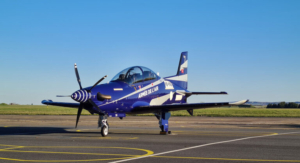
UK-headquartered Babcock revealed that it had been chosen as the preferred bidder for France’s 15-year, €800 million tri-service Mentor2 pilot training programme contract, due to be awarded in April 2025.
The Mentor2 contract will see 22 trainers being provided (plus three for use by the DGA), to replace training now being provided on Cirrus SR20s and Grob G120As at Salon de Provence and Cognac air bases. These aircraft are provided by the Airbus Flight Academy.
Babcock has also signed a memorandum of understanding with Aeralis centred around the UK developer’s innovative modular aircraft design. In September 2023, the companies said that the MoU sought: “to outline the value of a transformational delivery operating model for making different Aeralis aircraft configurations available to air forces as a service.”
The company’s €4.4 million acquisition of the L-39s will, it says, “strengthen our capabilities to support the training and development of air force pilots.”
The aircraft were previously operated by Apache Aviation at Dijon-Longvic airport (the former Base Aerienne 102). The company operated the Khalifa Jet Team from March 2002, making its airshow debut in May 2002 and working up from a two-ship to a four-aircraft team. Khalifa pulled out of its sponsorship of the team in early 2003, and Breitling SA took over, the Swiss watchmaker’s investment allowing an expansion from a four-ship to a seven aircraft display. The Breitling Jet Team was the only civilian aerobatic team in the world to fly jet aircraft, and performed numerous demonstrations in Europe, North America, and Asia. Breitling withdrew its sponsorship in 2019, and Apache thereafter used the aircraft for ‘jet experience flying’.
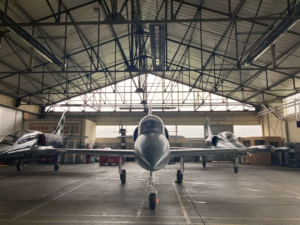
The aircraft will reportedly remain at Dijon with the new Babcock academy, and it is not clear whether any or all of the former Apache pilots will be involved. All are ex Armée de l’Air fighter pilots, and some of them were also former Alpha Jet instructors. In Babcock hands, the company says that the aircraft will be used for training future fighter pilots, L-39 pilot instructor certification, refresher training for qualified fighter pilots, and training for pilots and advanced controllers (JTAC) in close air support missions.
The aircraft will support the SDTS team bid for the French Air Force Red Air contract, helping to train fighter squadrons, military ships, and French and European army units as aggressors and as aerial targets. The French Air Force still don’t have a budget for this requirement, so the programme may be cancelled.
The aircraft are currently on the Estonian civil register, and will need new avionics to meet regulations and to be transferred to the French register (which will be required).It is not clear which nation’s ‘future fighter pilots’ will be trained on the L-39s. The aircraft is believed to be viewed as unsuitable for the NATO Flight Training Europe requirement. This may make the most likely target customers the air arms of former French colonial possessions and other developing nations. Thoughts that they might use them for training additional pilots for Ukraine, though the present scheme using Alpha Jets will continue through 2026.
Babcock says that: “The courses will be designed and delivered by former fighter pilots from the French Air and Space Force, will be specifically tailored to the needs of international air forces and aligned with NATO’s standard operational procedures. Advanced training will also be delivered on the L-39 aircraft, based on realistic combat scenarios.”
Pierre Basquin, Babcock’s Chief Executive Aviation and CEO France, said that: “Military pilot training is a critical component of our customers’ defence capabilities. Expanding our military training activity aligns with our ambition to support our customers’ needs, both in the short and long term. With our expertise and infrastructure, we deliver a complete training system which provides military pilots with a comprehensive training experience that reflects a real military flying environment. Our programmes will develop technical skills and instil essential attitudes for facing field challenges. By closely collaborating with our clients, we will ensure the continuous adaptation of our methods and tools to guarantee training that remains at the forefront of innovation.”
